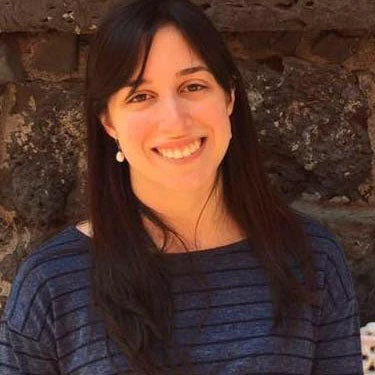
copyright: Shutterstock / Kwame Amo
Put yourself in the shoes of a classroom teacher this past academic year. Schools have closed and reopened multiple times, often leveraging remote or hybrid modalities. You’ve had to quickly adapt to a new way of working, and stay flexible as schooling plans have changed. You’ve had to find ways to teach in a new way, leveraging different pedagogical strategies, innovating to keep your students motivated, and providing socioemotional support to them during an uncertain time for all. It has been truly inspirational to see teachers around the world step up to the plate and give their all to help ensure learning continuity for their students.
Unfortunately, teachers do not always get the support they need to improve their teaching and master new skills. There are some powerful examples of professional development programs that have been shown to be effective in supporting teachers (see for example here and here). However, this is not the reality for all teachers today, with many teachers not having access to high-quality teacher professional development (TPD).
Why is this the case?
We argue that there are two gaps that need to be bridged so that all teachers can have access to high-quality TPD opportunities. First, while we know what works for effective TPD from the research and experience of the most successful programs, these findings are often not reflected in what happens in practice. And second, a good design does not ensure good implementation on the ground.
Coach is the World Bank’s new initiative focused on improving in-service TPD by bridging the two gaps outlined above in order to support countries to align their TPD systems and programs with four evidence-based principles: that it be tailored, practical, focused, and ongoing.
How does Coach help bridge these gaps?
First, the Coach program has developed a set of tools and resources to support stakeholders—from policymakers to pedagogical leaders and teachers—in designing and implementing effective TPD programs and systems.
Some of these resources are focused on addressing the gap between research and practice by codifying the evidence and experiences of successful programs in the field and drawing implications for practice. For example, the Structuring 1-1 Support Guide and the Implementing 1-1 Support Guide outline the details of how stakeholders should think about building effective systems that provide 1-1 or individualized support to teachers through coaching. These two resources answer questions such as: Who can provide coaching support to teachers? How often and how should coaching sessions be organized? And how should an effective coaching and feedback session be structured? We also have guides for group training and for school- and cluster-based training.
Other resources are focused on addressing the gap between design and implementation. For example, we have developed a set of sample TPD materials that model how to incorporate the four Coach principles into a program’s design and implementation. The Foundational Teaching Skills Guide, for example, outlines a set of 11 Foundational Teaching Skills that teachers can leverage in the classroom, and provides clear step-by-step guidance on how to implement them effectively. The accompanying Teacher Training Package provides materials to train teachers who aim to build and master all or a subset of these Foundational Teaching Skills (including a Trainer Manual, Participant Workbook, Training Video Scripts and Training Assessments), and the Coach Training Package provides materials to train pedagogical leaders who support teachers in developing these skills.
A second way in which the Coach program bridges the two gaps identified above is by providing direct technical and financial support to countries, within the context of World Bank projects. In Punjab, Pakistan, the Coach team is supporting the government in developing a system to ensure that teachers receive ongoing feedback on their teaching practices within the classroom. Coaches now observe teachers once a month using a classroom observation tool based off Teach, the World Bank’s classroom observation tool, and they use the results from the observations to provide specific and focused feedback to teachers to improve their teaching practices. And in Mozambique, the Coach program is working with the government to support the development of the Aprender+ initiative, focused on improving early-grade reading outcomes through a three-pronged approach focused on the alignment between curriculum, pedagogy, and assessment. The Coach tools and resources are being used to help inform the teacher professional development model within the program.
Finally, a third way in which the Coach program addresses the two gaps is by ensuring that the tools and resources developed are informed by and build on the experience of what has already been done in the field, and the expertise of those closest to the classroom learning experience. To this end, all Coach tools and resources undergo a period of public consultation, during which we seek feedback especially from teachers, pedagogical leaders, school and system leaders, and other educational actors to strengthen and improve the tools and resources. Additionally, the Coach program has a Technical Advisory Board of practitioners, policymakers, and academics with recognized expertise in in-service teacher professional development, who provide technical feedback to our program and tools.
We hope that you will join us in our efforts to support teachers to accelerate learning by enhancing in-service TPD. We invite you to join public consultations on the upcoming Coach materials, and to explore how Coach could be useful in your own context. You can find the full list of Coach tools and resources currently out for public consultation here, and we’d love to hear from you at coach@worldbank.org!
Do you want to learn more about the Coach program?
• Check out this short introductory video about Coach on YouTube (also available in Arabic, French and Spanish)
• Learn more about the program at our website
• Take a look and share your feedback on the Coach tools and resources available for public consultation
• For more on how the Coach program fits within the World Bank’s strategy on teachers see “Realizing the promise of effective teachers for every child – a global platform for successful teachers”
• For more on the World Bank’s strategy on teachers, see “Successful Teachers, Successful Students: Recruiting and Supporting Society’s Most Crucial Profession”
• And stay up to date with our work by listening to the World Bank Teachers podcast (Apple and Spotify) and signing up for the Teachers’ Team Newsletter!




Join the Conversation